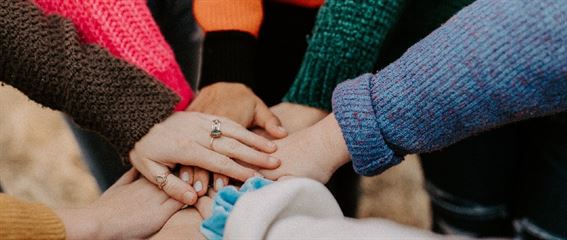
Finding Online Body Dysmorphic Disorder Support Groups

People who suffer from body dysmorphic disorder (BDD) obsess over perceived flaws in their appearance. This can deeply affect their day-to-day lives. However, getting help for BDD and finding support groups is possible.
What is Body Dysmorphic Disorder?
Body dysmorphic disorder (BDD) is a mental health condition that causes people to fixate on what they see as flaws in their appearance. It's not vanity or an eating disorder—it's a serious mental illness.
A person with BDD may have noticeable flaws, such as spots, acne scars or wrinkles. But these issues don't affect how they function day-to-day. Instead of being overly critical of themselves when they look in the mirror, they obsess over their perceived imperfections and spend hours every day checking them out in detail. They may repeatedly seek reassurance about their looks from others.
Because it often affects people who are very concerned about looking good, it can be difficult for those with BDD to seek help from their friends and family members without feeling judged. They often fear being ridiculed, rejected or disliked because of a perceived flaw in one's appearance. This can make it harder for them to learn ways of coping with their symptoms.
People can develop BDD at any age, but it typically begins during puberty—around age 13-14 years old for most people—and may continue into adulthood if left untreated. Other conditions related to severe body image issues include eating disorders like anorexia nervosa and bulimia nervosa; depression; social anxiety disorder; substance abuse; self-harm behaviors such as cutting; suicidal thoughts/attempts
Who Does BDD Affect?
BDD is more common in women than men, and affects about 1% of the general population. It’s also more common in people who are single than those who are married or in a relationship, or those with children. In fact, there seems to be a correlation between social isolation and BDD: separated people have higher rates of BDD than single or married/cohabiting individuals.
If you find yourself feeling isolated from family, friends or even your partner—and maybe even feel like you’re unworthy of love because of how you look—it could be worth getting professional help for your symptoms of body dysmorphia.
When Should You See a Doctor?
You should consult a professional if you have been preoccupied with your appearance for at least an hour a day, every day, for at least four weeks. And, you should also see a professional if the way you think about your body results in self-harm like cutting and burning yourself.
Finding Online Support Groups
Online support groups can be a great place to find the body dysmorphic disorder (BDD) support you need, but it's important to understand how these communities work.
First, it's important to know that there is no single place where all of these resources are centralised. Instead, they're spread out across a variety of websites and apps. You'll have to search through at least a few different places in order to find what you're looking for.
Second, not everything that claims to be an online community actually is one—you'll have to do some research on each site before joining them in order to ensure that they are legitimate and safe spaces for people with BDD symptoms like yourself.
Body dysmorphic disorder can be an isolating experience. It can often feel like nobody understands what you’re going through. But it’s important to remember that you don’t have to go through this alone! There are plenty of places online for you to find help, support, and community from people who know exactly how you feel. You might find that the biggest step is taking that first step and reaching out—but we promise, it will be worth it.
Articles
Build your awareness and get inspired with our researched articles on how you can strengthen your well-being
Popular Topics
An OTP has been sent to the email address
provided.
Please check your Inbox and Spam folders.

What Would You Like to Speak with a Specialist About?
Mental Fitness Journey starts Now!
Chearful Connects you with Top-tier Qualified Wellness specialists for the Price of a cup of Coffee!

Next Steps
- A Client Team member will reach out to you to schedule a session with the most suitable specialist.
- You will receive an email with a 10% Discount Code* for your 1st session.
- We invite you to Explore the Platform & Sign Up today! *Upto a maximum of $10 discount on a session purchased




 1000 Read
1000 Read











